 Cloud Computing, or Cloud computing is no longer a strange concept in the IT community and in the field of business and education.
Cloud Computing, or Cloud computing is no longer a strange concept in the IT community and in the field of business and education.
Cloud Computing has been deployed in almost all areas of technology in life, but it has only been exploited at an early stage.
The potential of cloud computing is immense and will be the nucleus of the next revolution in human history, CMCN 4.0!
With the desire to share experiences about Cloud Hosting, Cloud VPS, Cloud Server services, VHW introduces a mini Series on Cloud Computing - Cloud Computing and related services, as well as more thorough sharing on business. to recognize and choose Cloud Hosting - good quality VPS!
Cloud Computing - Models & Cloud Services
In this article, we will explore what is Cloud Computing, the types of services and deployment models are widely applied today.
a. What is Cloud Computing?
Cloud Computing - or Cloud computing is the model virtual server computing, using computer technologies to deploy internet-based computing services instead of providing services on traditional physical servers.
Clouds here are interpreted as the Internet.
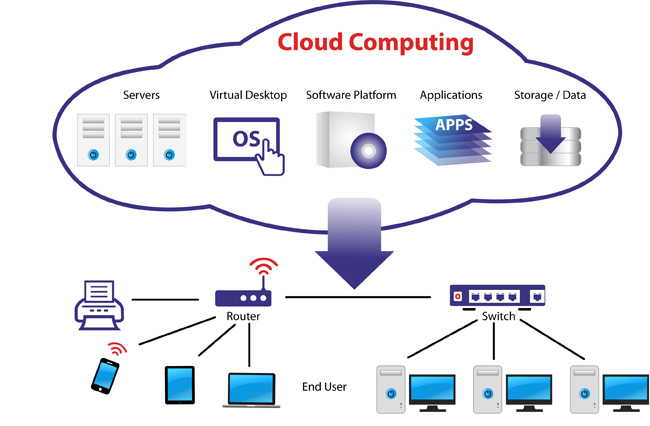
After searching Google for the whole session, it turned out that Cloud Computing does not have a unified definition, ... and its interpretation NIST seems most reasonable today:
Cloud Computing is a service model that allows users to access shared computing resources (networks, servers, storage, applications, services) through a network connection. Easily, anytime, anywhere, on request. This cloud resource can be set or canceled quickly by the user without the intervention of a Service Provider!
Identify Cloud Computing
Cloud Computing - Cloud computing is a computing model, not the name of a technology. To deploy services on the Cloud Computing model, they need to be used necessary technology.
Normally, if you only rely on the ‘virtual server computing‘It's hard for you to determine clearly which service is provided on the Internet as cloud computing, which is traditional computing.
Determining which one is deployed on the cloud - we rely on cloud virtualization technology, which must have enough 3 virtualization elements:
- Virtualization calculation (CV - Compute Virtualization)
- Virtualization of storage (SV - Storage Virtualization)
- Network Virtualization (NV - Network Virtualization).
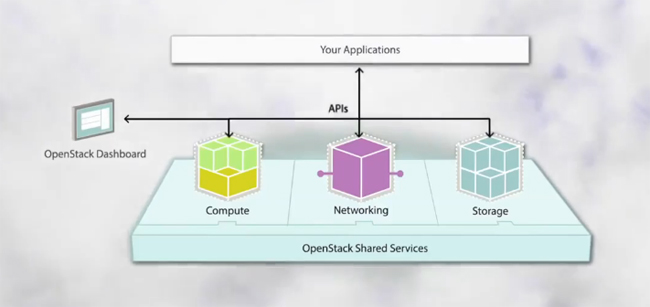
When a physical server cluster (Server) - a physical hard drive (Storage) - connects via a network infrastructure (Network) and is applied with technologies to virtualize CV - SV - NV, we have only one cloud computing!
Services using cloud computing are:
The power of this cloud is the total power of servers - hard drives and physical network devices using cloud deployments. And cloud virtualization technologies help reallocate resources in the form of cloud virtual servers - Cloud Server!
- The virtual server created from that cloud is called cloud virtual server - Cloud Server.
- Services running on the new Cloud Server called cloud computing services - Cloud Services
- The software (Operating System ..) running on Cloud Server is called Cloud Platform
The following are not deployed as cloud computing models:
- Virtual server VPS (Virtual Private Server) or Shared Hosting is created from a physical server is usually not a cloud virtual server, if it is not deployed in the cloud as above.
- Game Online service if running on the Server located in the high-class Data Center (Tier 3) of Viettel IDC or located in the company's office is not a cloud service, if the Server is not created from the cloud as above.
The spread of Cloud Computing Application
Cloud Computing is now booming and playing a leading role in the billion-dollar computing industry day (expected to be over $ 220 billion in 2019)!
You can see Amazon Web Services (AWS), Google Cloud Platform, Microsoft Aruze, Google Apps, Android Apps, iCloud, App Store, MS Store ... all deployed on Cloud Computing.
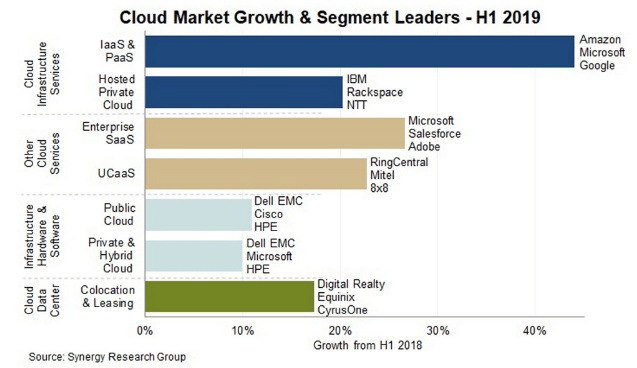
However, cloud computing continues to expand - it's just a nascent stage, because of the huge potential of new fields like IoT (Internet of Things - Internet of Things) or AI (Artificial Intelligence - Artificial intelligence) …
In the future, most digitized data will go to the cloud!
b. Service model of Cloud Computing (Service Models)
Services deployed on cloud computing in the Everything as a Services model, that is, at all levels are services.
At present, Cloud Computing is dominating 3 service models, according to each exploitation level: infrastructure, platform and software (in the form of cloud services).
Also note that many vendors deploy all three models, or a service can coordinate models together.
Infrastructure as a service - IaaS
Cloud Server, Cloud VPS, Cloud Hosting is a service of leasing computing and storage infrastructure - a network deployed on cloud computing, following the IaaS model.
IaaS - Infrastructure as a Service is a cloud infrastructure rental model.
Specifically, leasing virtual cloud server (Cloud Server) such as Google Compute Engine (GCE), Microsoft Aruze, Amazon Web Services EC2, Vultr Cloud VPS, Viettel IDC Cloud Server ... ..
Cloud storage services such as Google Drive, Dropbox, Vultr Cloud Storage ... are also IaaS.
IaaS market share is dominated by technology giants, up to more than 75%, with customer segments being large & medium enterprises, governments & organizations.
Simply because Amazon, Google, Alibaba ... there are billions of dollars in Datacenter systems around the world and they have the best human resources & the most advanced technology platform!
All the remaining businesses account for only 23% of the market share, including popular names like Cisco, Huawei, VMware, OVH, Rackspace, or smaller like Linode, DigitalOcean, Vultr ...

Platform as a service (PaaS - Platform as a Service)
The platform includes both cloud computing & storage infrastructure + operating system and Middleware software, Rutime aims to provide the hardware platform - software and framework to deploy applications on it quickly. quickly without having to invest in the platform.
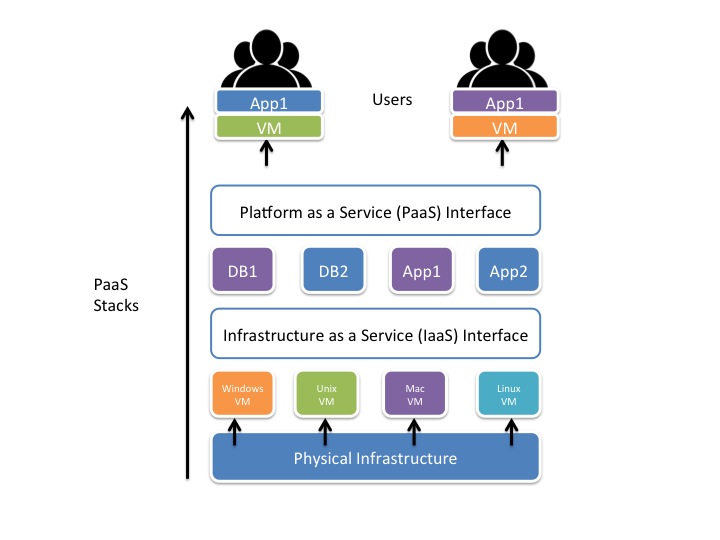
For example, Microsoft Aruze, Heroku, AWS Elastic Beanstalk, OpenShilf platforms ... allow developers to deploy applications without investing in operating system infrastructure and software or application development platforms. other.
Small businesses are also starting to choose to develop applications in the cloud by hiring cloud platforms of big companies like Google, Amazon, Microsoft Aruze or IBM ...
Software as a service (SaaS - Software as a Service)
SaaS is a service at the last level, providing software but not running on a normal server or PC, but running on cloud computing platforms (available infrastructure + platform - platform).
SaaS is more popular than IaaS and PaaS, most service providers have started to transfer traditional software models to SaaS, for example Google Apps, iCloud Apps, Salesforce, BigCommerce, Mailchimp, Slack, etc.
Currently in the field of Management, Data Analysis, Marketing, ... is booming cloud services that allow businesses access to diverse solutions, much lower cost than buying software copyrights. then deploy on the internal IT infrastructure as before.
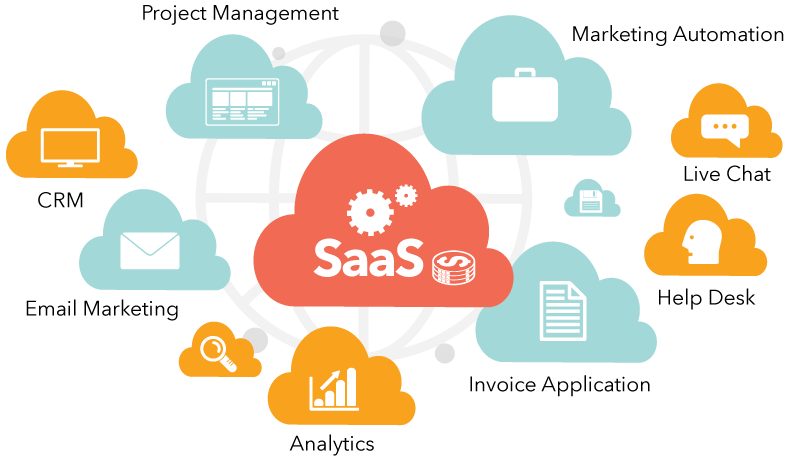
But it is more common for external developers (from large to small) to deploy software systems in the cloud by hiring a service platform (PaaS) from the world's largest Cloud Computing providers!
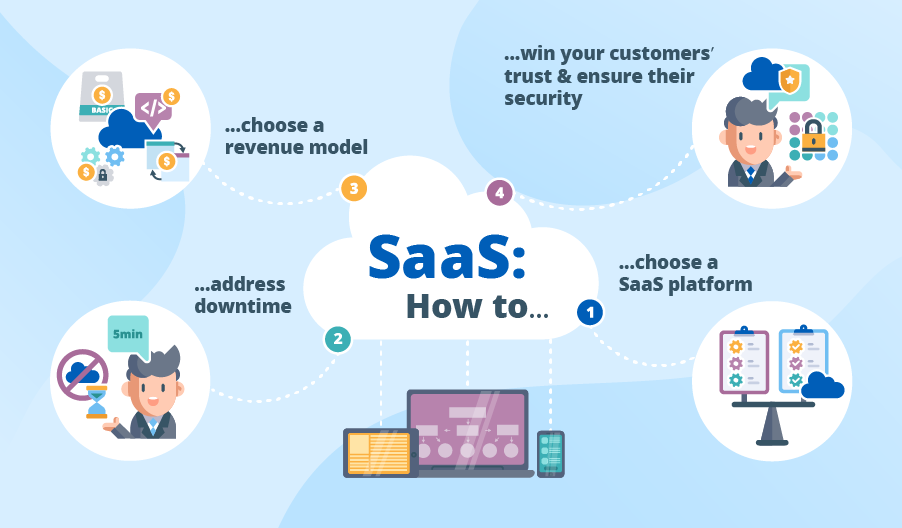 The hire of PaaS to provide SaaS is the best solution today, no investment costs for infrastructure and platforms, nor specialized technical team on Platform.
The hire of PaaS to provide SaaS is the best solution today, no investment costs for infrastructure and platforms, nor specialized technical team on Platform.
The developer only selects the right Platform - hire PaaS, then focus entirely on product development.
OpenSaaS - stands for Open source Software as a Service, is an open source cloud software service, the concept was launched by Dries Buytaert - the famous CMS founder Drupal. Popular OpenSaaS services include WordPress.com, Drupal Gardens...
Other service models
Because Cloud Computing continues to expand and apply to almost all types of services that can be posted on the Internet, in addition to the three main current models (IaaS, PaaS, SaaS), service models continue to appear. Other cloud computing, divided according to specific, although it also has the properties of the model of the trio (IaaS, PaaS, SaaS):
Serverless Computing
Serverless, does not mean that you do not use Server, which implies that the application developer will not need to care about Server operation management.
Instead of having to hire a fixed amount of resources and self-manage - operate Cloud Servers, the Serverless Computing service will take care of the management - operation and allocation of Server resources according to the needs of the application.
Fees also follow the Pay Per Use or Pay As You Go (PAYG) model, using as much as you pay.

A special feature of Serverless Computing is the amount of resources used in association with the operation of the application, for example if the application is not running, resources allocated to zero will not incur costs.
Serverless also ensures the allocation, expansion or collapse of resources automatically & extremely quickly according to the needs of the application.
Serverless Computing is an extremely economical solution for cloud application developers (SaaS) because there is no need to invest in server deployment and management, eliminating the cost of redundant resources if renting a normal server. .
MBaaS - Mobile Back-end as a Service
MBaaS, also known as BaaS - Back-end as a Service is a cloud service model that provides integrated Back-end solutions from third-party APIs (deployed on Public Cloud) for Apps developers and Web Apps.
As a result, Developer does not need to focus too much on developing Back-end features and deploying applications in the cloud, optimizing the time to focus on the Front-end and user experience ( UX / UI).
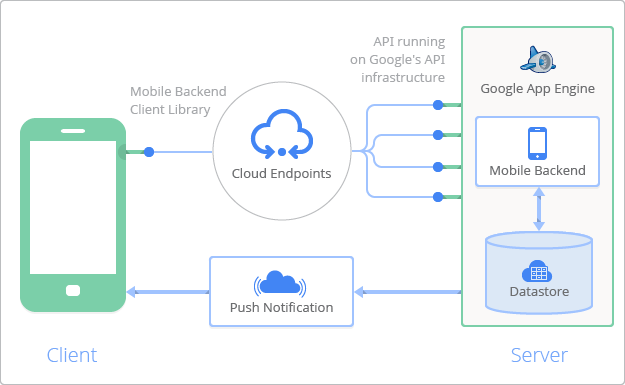
The famous MBaaS now is Google's FireBase service, AWS Amplify, CloudKit, ....
With the Web application growing extremely fast, BaaS services have a huge potential, helping deploy applications in the cloud much faster than before.
FaaS - Function as a Service
FaaS - aka function as a service. This model allows developers to deploy a function (code, application) ... on the Cloud.
FaaS is similar to PaaS model (providing platform for dev) but combined with Serverless Computing model.
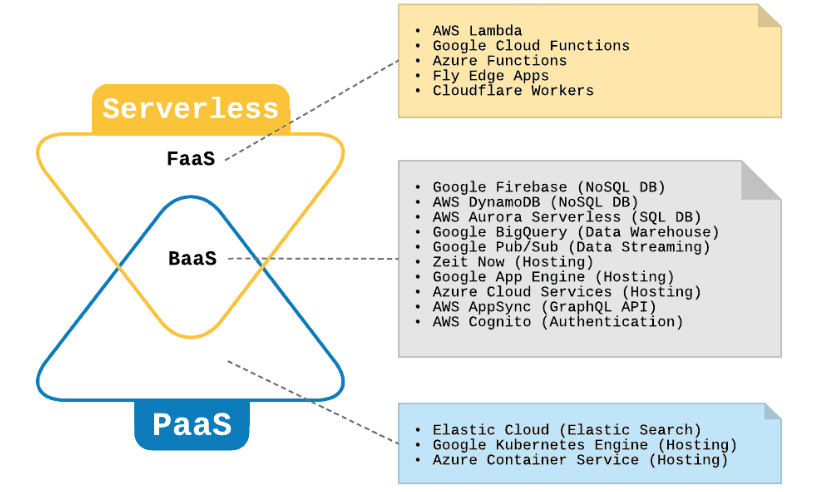
FaaS It is also developing very well with many services from big companies like AWS Lamda of Amazon, Cloud Functions of Google, Aruze Functions of Microsoft, IBM OpenWhisk or of Oracle as Cloud Fn ...
c. Deploying Models Deploying Models
Depending on the form of supply and demand, Cloud Computing is deployed according to the three most popular models today:
Public Cloud - Public clouds (public)
Shared cloud virtualization environment, we can imagine the Datacenter of Google, Amazon, or Viettel IDC is the Public Cloud.
The Public Cloud has many different sizes, maybe the billion-dollar cloud system of Google Cloud, Amazon Web Serivice, Alibaba Cloud, Microsoft Aruze or Internet Datacenter (IDC) services deployed on Cloud Computing, for example in Vietnam. Viettel IDC, FPT IDC ....
You can also set up a server cluster in the cloud model and then provide it as a Public Cloud service.
The Public Cloud model provides a public cloud infrastructure that can be rented as Cloud VPS (cloud server), or leased to deploy VPC (Virtual Private Cloud - internal cloud system) Cloud for businesses, belonging to the Private Cloud category below), or provide hybrid cloud solutions ...
If you meet the criteria of the Public Cloud towards, usually the service must meet Pay As You Go - that is, the form of service to pay as much.
Services in the form of Public Cloud should also be scalable - shrinking resources, canceled by the customer. The most accurate examples are Amazon Web Service EC2 or Google Compute Engine ...
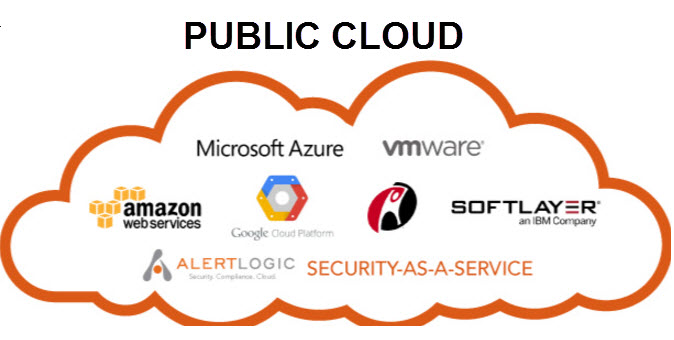
Cloud Server services (VPS Cloud & VPC Cloud) are deployed on Public Cloud.
Private Cloud - Private cloud
Private Cloud is a cloud deployment model to provide an internal security cloud virtualization environment for organizations and businesses with independent computing - storage & virtualization resources. Only allow a certain number of users (eg company employees, customers ..) to access data of Private Cloud.
Private Cloud is always deploying Firewall system to prevent outside penetration.
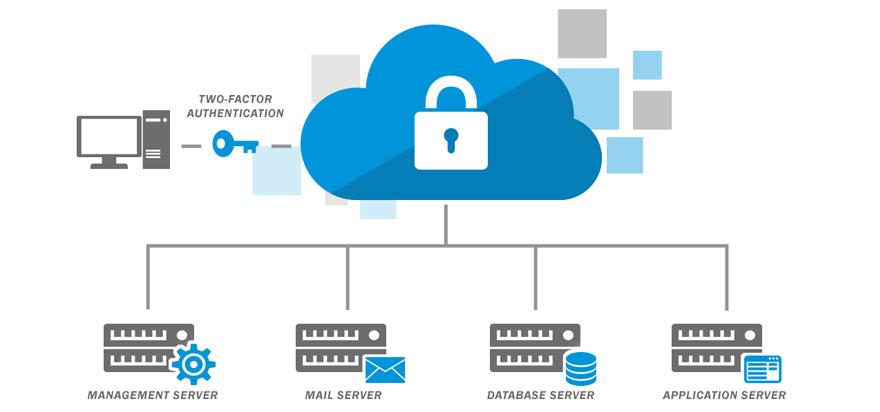
Forms of deploying Private Cloud:
- You can deploy Private Cloud right on your own physical server cluster with cloud computing technology models.
- Or rent Private Cloud as a VPC (Virtual Private Cloud) from Public Cloud services.
Most obviously, the VPC services of Amazon, Google Cloud, OVH PVC, Viettel IDC, FPT IDC ... allow you to deploy private cloud for your organizational business by hiring from a Cloud Datacenter (Public Cloud) .
Setting up Private Cloud is usually only optimal for businesses and organizations that want to take advantage of the hardware from the old server infrastructure, instead of having to hire PVC from Public Cloud services. Or organizational businesses need absolute data security such as banks, ...
And most businesses today, renting PVC from reputable Public Cloud services (Viettel IDC, FPT IDC, Google Cloud, AWS, MS Aruze ...) is an economical and effective solution that can help businesses cut down. reduce human resources management - maintenance of server systems.
Hybrid Cloud - Hybrid cloud
As a limited connection - sharing between Private Cloud and Public Cloud, the goal is to optimize the sharing of virtualization resources and utilities between Pubic and Private Cloud.
The term hybrid cloud - Hybrid Cloud is mainly used by service providers, as a solution to balance the security - security of Private Cloud and the power of Public Cloud.
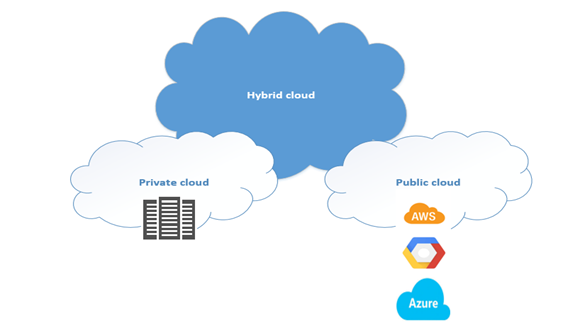
Simple example, you set up a private cloud of Private Cloud in Viettel IDC data center (With your physical servers located here).
But your Private Cloud resources are too redundant for your business needs, so you will use Hybrid Cloud solutions to share the redundant resources with the Public Cloud (of course, to optimize revenue).
In addition to the above 3 deployment models, there are also models identified in other directions, which are also very famous such as Community Cloud, Distributed Cloud, Big Data Cloud ...
d. Advantages and disadvantages of cloud computing
Cloud Computing brings great power and utility, we take a look at its benefits, then there will be some disadvantages of this model - nothing is perfect!
Advantages of Cloud Computing
High availability
HA - High Availability is high availability. Cloud computing enables data dispersion, virtualization of physical resources into virtual servers - in virtual hardware - virtual networks, the allocation of these resources is extremely flexible.
Therefore, even if a part of the cloud (server, physical hard drive, etc.) fails, everything can continue to work on the rest.
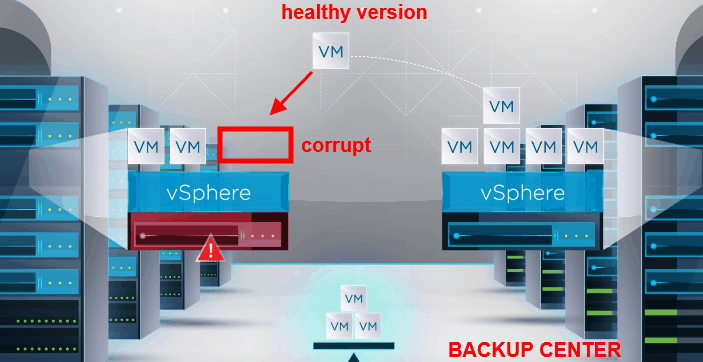
High Availability is also the availability of infrastructure (IaaS), the foundation (SaaS) to be able to deploy applications on it quickly.
Flexible allocation and management of resources
All computing resources have been virtualized and distributed in the cloud, making management allocation and flexibility easy.
Cloud computing makes creating - upgrading - downgrading ... virtual server resources very easy.

If you need 2 GB more RAM for the application - yes, you need 1 more CPU core ... available immediately ... almost immediately and without delaying the operation of the running software.
With an older system, you need 2 GB of RAM, you need to install a 2 GB RAM stick or have to reset the virtual server to increase RAM.
Affordability
Cloud computing allows the deployment of a service providing computing resources in the form of Pay Per Use - or commonly known as Pay As You Go (PAYG) - which is how much you pay.

Traditional server deployments require businesses to invest or rent one / many servers - hard drives - fixed network infrastructure and are unlikely to fully exploit the resources.
Not to mention with services like IaaS and PaaS, software developers and suppliers can easily deploy SaaS services without having to invest and manage the server themselves, greatly reducing deployment and operation costs. warranty - server system maintenance - drive & network.
Unlimited storage
Cloud computing services follow IaaS model, allowing the deployment of huge cloud storage systems - infinite scalability.
Previously, to store several thousand TB of static data or database for the application, one had to invest the system in complex physical hardware.
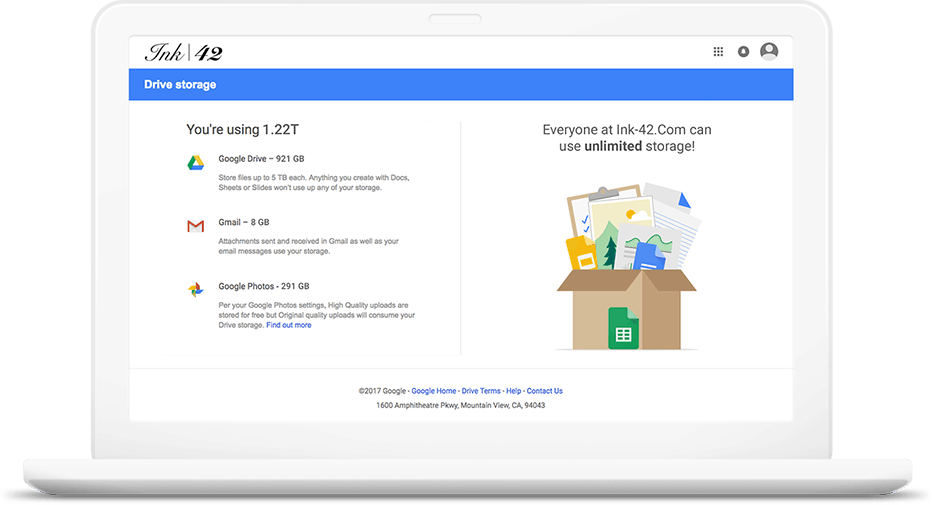
Now hiring a few thousand TB on Google Cloud, AWS or MS Aruze is simple, not only store and access anywhere but also connect to the applications on the Cloud very easily.
Easy Backup & Restore
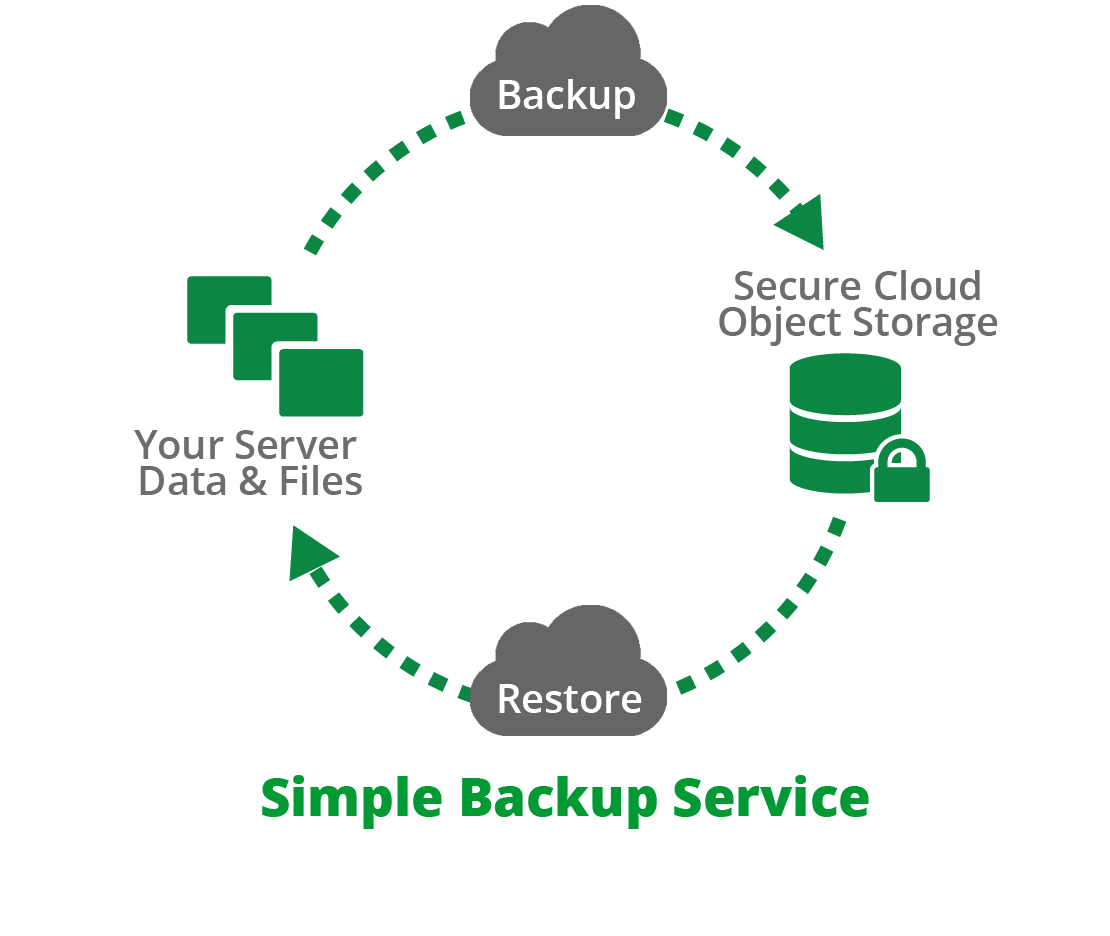
Because data is stored - operated and used in the Cloud, Backup and recovery are highly safe compared to conventional backup - storage systems.
Cloud Computing itself provides data backup and distribution solutions on multiple independent cloud virtual servers - the best resilience - ensuring High Availability (high availability) criteria.
Easy access - wherever you are
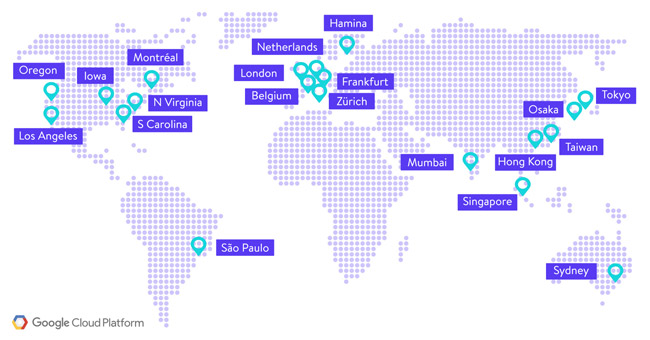
Fast application deployment
One of the biggest advantages of Cloud Computing. With IaaS and PaaS services spread evenly across all market segments, web service providers (applications, games ...) easily deploy the service directly.
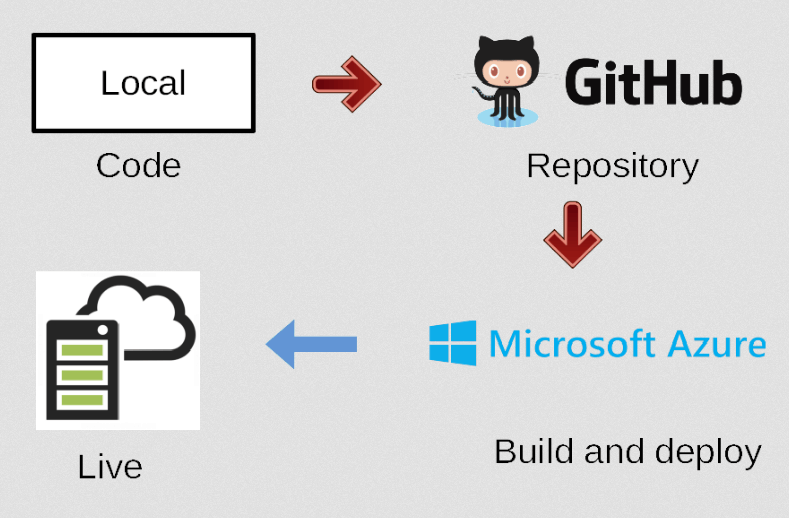
Since everything about the infrastructure & platform is ready, not to mention a lot of add-ons are available (eg Back-end as a Services)…
For example, to provide an online game or online application, an individual could hardly do it because he had to invest in server, network, platform, etc. then deploy - operate - maintain ....
Now, you just need to deploy directly on MS Store, Google Apps ... as a cloud application, everything 'below' let Microsoft and Google worry!
Cons of Cloud Computing
No technology model is perfect, Cloud computing has its own problems. Of course, compared with its benefits, we are ready to face and solve these problems:
Lack of independence on technical issues
The cloud is made up of physical hardware, and hardware always has its problems.
Large clouds - deployed on Google's terrific Datacenter, MS, Amazon ... the server quality, hard drive, network equipment, Datacenter infrastructure ... at the highest level. But problems can still occur as usual.
 As for smaller clouds, such as DC of Viettel IDC, FPT IDC, VNG IDC ... then the problem will take more. And cloud by businesses (Hosting providers) in Vietnam self-deploying on their server cluster, the problem is a must have ..
As for smaller clouds, such as DC of Viettel IDC, FPT IDC, VNG IDC ... then the problem will take more. And cloud by businesses (Hosting providers) in Vietnam self-deploying on their server cluster, the problem is a must have ..
For example, the Datacenter incident of VinaGame (VNG) collapsed earlier this year ...
Technical problems can also arise on cloud computing software and technologies.
If the server is deployed and managed by the enterprise, if there is a technical problem, the enterprise can intervene, and if hired from the provider Cloud IaaS, PaaS, ... it is forced to entrust completely into the provider. .
For example, Google Cloud is suddenly disappearing, millions of businesses and billions of users are just crying!
Data security issues
The data is stored on the Cloud, where it is located and what the Cloud service does with it, which we cannot control.
For example, Vietnamese businesses store data on Alibaba's Cloud, or use data synchronization services on Xiaomi phones ... we have reason to worry about data security.
Even Facebook, Google, ... exploit user data in many ways, both openly and surreptitiously.
Another problem is that hackers are now beginning to redirect attacks to cloud servers to steal data or sabotage.

Nowadays, cybercriminals also easily bring malicious applications to the cloud such as Android Apps, App Stores .. to steal user accounts from mobile devices.
This becomes a real problem because the popularity of mobile apps is hundreds and thousands of times more common than software that runs on traditional computers.
Conclude
Cloud computing - Cloud Computing continues to thrive in both technology solutions and service and deployment models. With the key areas in Industry 4.0 such as Artificial Intelligence (AI), Internet of Things (IoT) ... the role of Cloud Computing will be even more important, gradually replacing platforms. old computer!
In the next section, we will learn about popular VPS and Cloud Server virtualization technologies:
Virtualization technologies VPS -Cloud Server. Pros & cons
This content is very important for you to understand the market segments Cloud VPS, Cloud Hosting to choose good quality services!

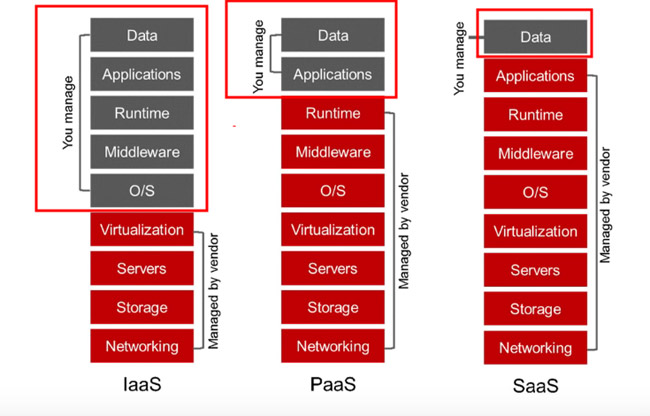


0 Comments